On the afternoon of April 4, 2025, at the National Economics University, the E-PhD Program organized a seminar on "Structural Macroeconomic Models for Policy Analysis in Emerging Market Economies with Illustrations for Vietnam."
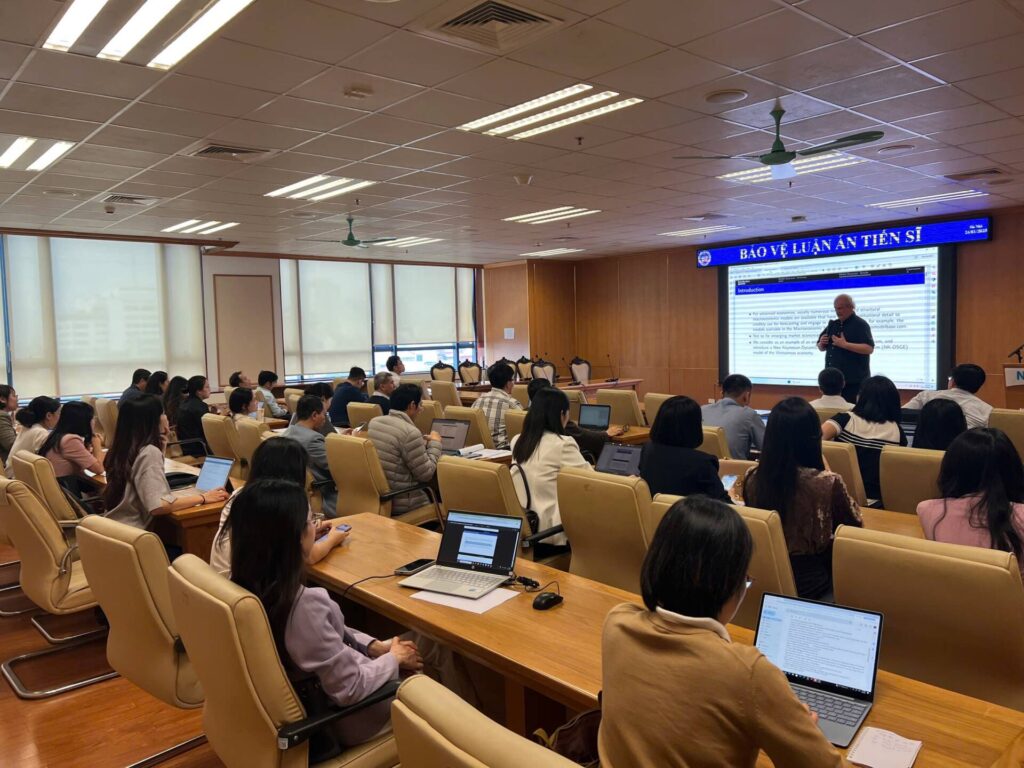
The seminar welcomed distinguished guest Professor Michael Binder, Professor of Economics at Goethe University Frankfurt. From the E-PhD Program's academic committee, participants included Associate Professor Bach Ngoc Thang from the Institute for Sustainable Development, Dr. Luong Thai Bao from the Institute of Banking and Finance, faculty members, doctoral students from both the English and Vietnamese programs, and other interested attendees.
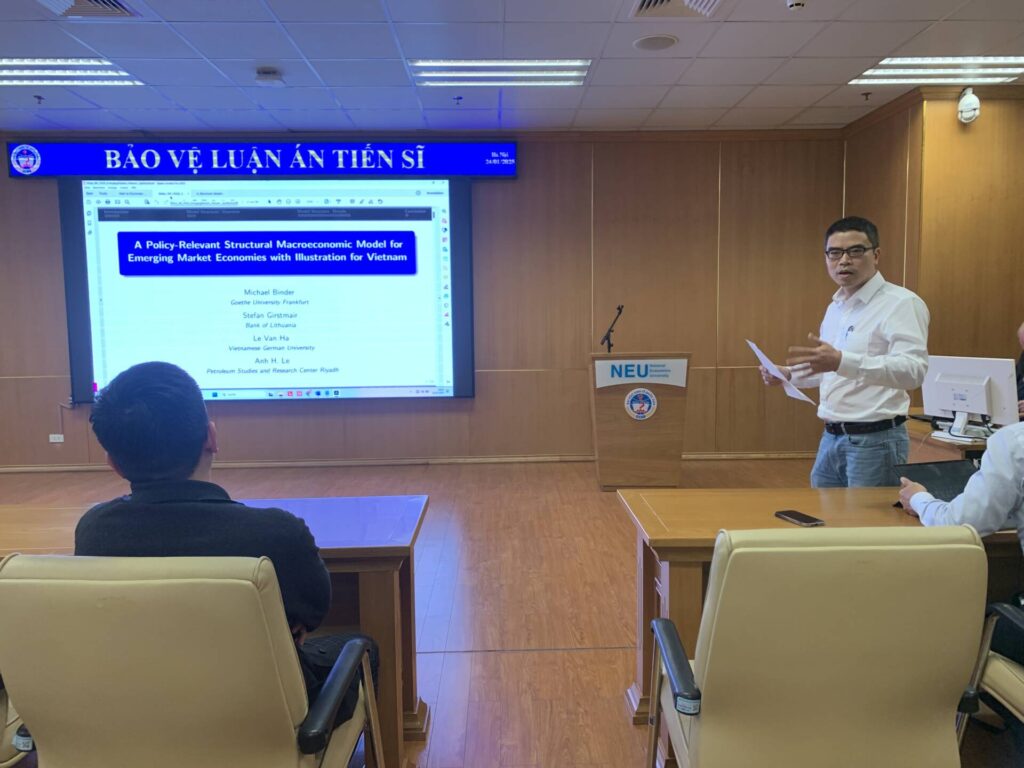
Opening the seminar, Associate Professor Bach Ngoc Thang welcomed and thanked the distinguished guest, faculty members, doctoral students, and all participants who attended. He introduced the keynote speaker, Professor Michael Binder, founding Dean of the Faculty of Economics, Finance and Management at Frankfurt, Germany, University of Economics and Business, Vietnam National University, Hanoi. Professor Binder also serves as Professor of Economics at Goethe University Frankfurt, where he has held the Chair of International Macroeconomics and Macroeconometrics since 2003. He has undertaken significant academic and research roles, published extensively, and received numerous awards. His research focuses on globalization, economic growth, income inequality, macroeconomic modeling and policy design for emerging markets, alongside developing computational methods for structural macroeconomic models and econometric techniques for dynamic panel data analysis.
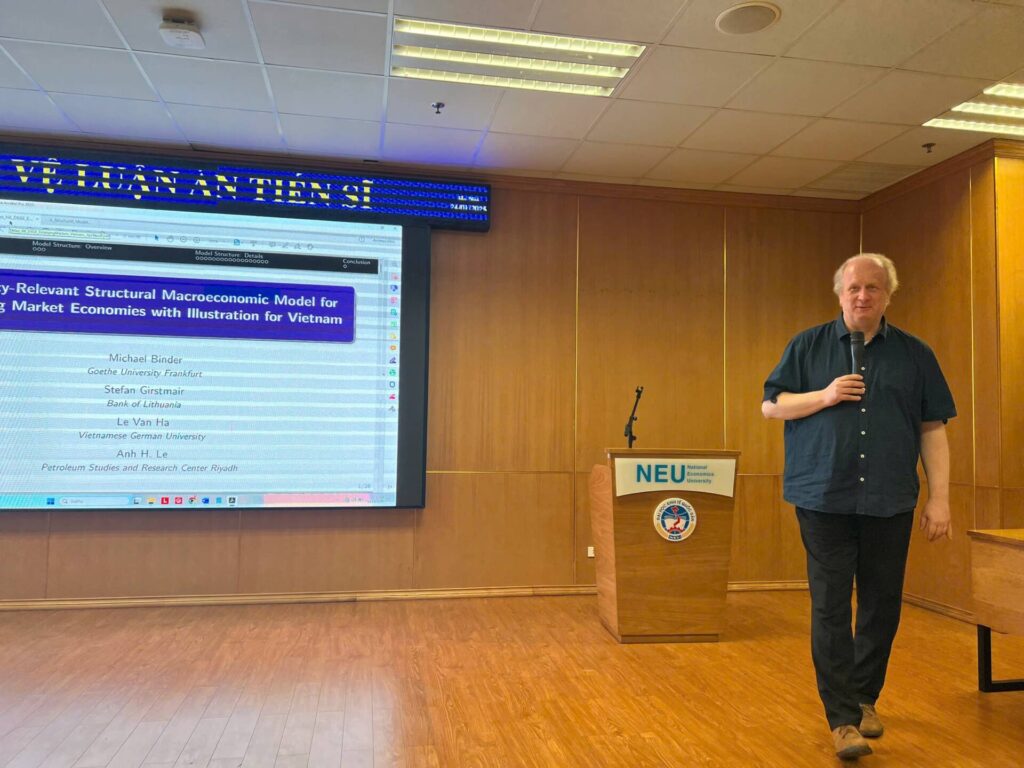
During the seminar, the speaker discussed his research paper "Structural Macroeconomic Models for Policy Analysis in Emerging Market Economies with Illustrations for Vietnam." Professor Binder explained that this paper focuses on Vietnam as a case study and presents a New Keynesian Dynamic Stochastic General Equilibrium (NK-DSGE) model, describing Vietnam as an open economy interacting with the United States and the rest of the world. The research incorporates institutional features representative of emerging market economies, particularly in Asia, including: 1. International trade within global value chains following the dominant currency pricing paradigm. 2. A diverse production sector comprising private, state-owned, and foreign direct investment firms, each facing asymmetric financial frictions. 3. Monetary policy partially targeting the exchange rate.
The study's estimated model demonstrates forecasting accuracy for core macroeconomic variables that is comparable to, and in some cases superior to, modern Bayesian Vector Autoregression (BVAR) models. Consequently, the research concludes that this model is highly suitable for policy analysis.
The study's key findings include: (i) Vietnam's output losses from domestic contractionary monetary policy shocks are larger than previously suggested by earlier structural models. (ii) The transmission of foreign shocks to the Vietnamese economy is weaker than previously assumed.
Concluding the seminar, on behalf of the English-taught PhD Program, Assoc. Prof. Dr. Bach Ngoc Thang expressed gratitude to the speaker for dedicating time to share valuable research experiences. The seminar provided substantial knowledge benefits for doctoral students and interested participants.
This scientific seminar represents a regular activity within the series of seminars under the English-taught PhD program at the National Economics University over recent years. The seminar series aims to serve doctoral students, young researchers, and faculty interested in economics, business, management, and other interdisciplinary fields within social sciences. This seminar series provides a platform for faculty and researchers to exchange ideas, connect, and collaborate on research initiatives.
Selected images from the seminar:
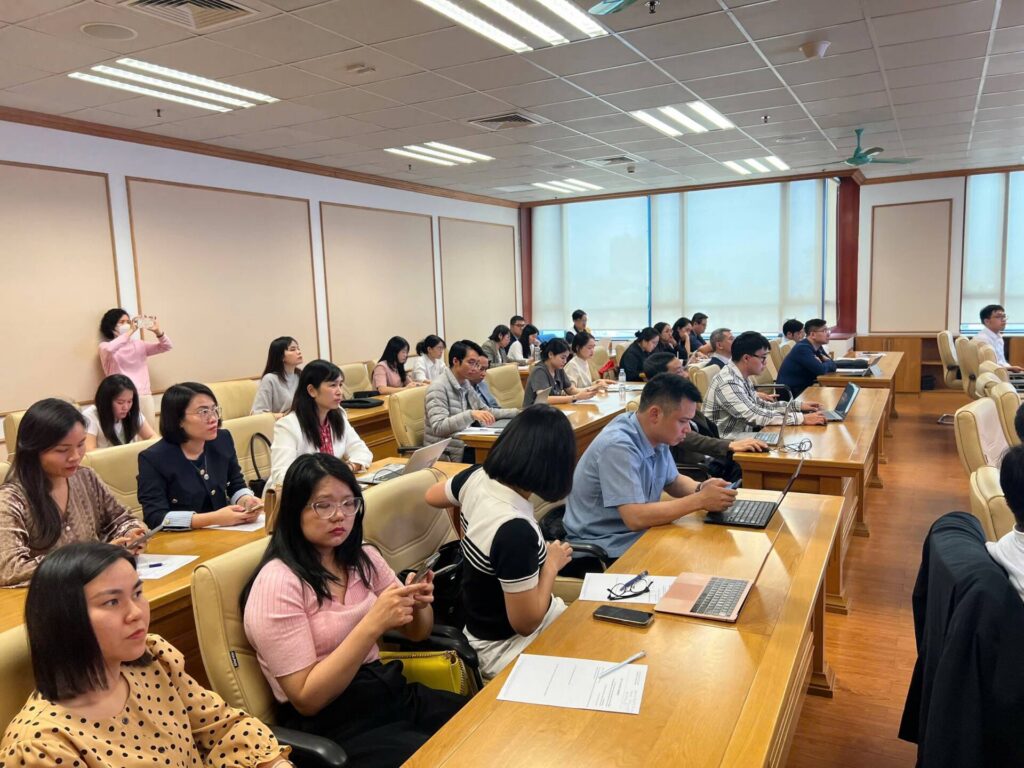
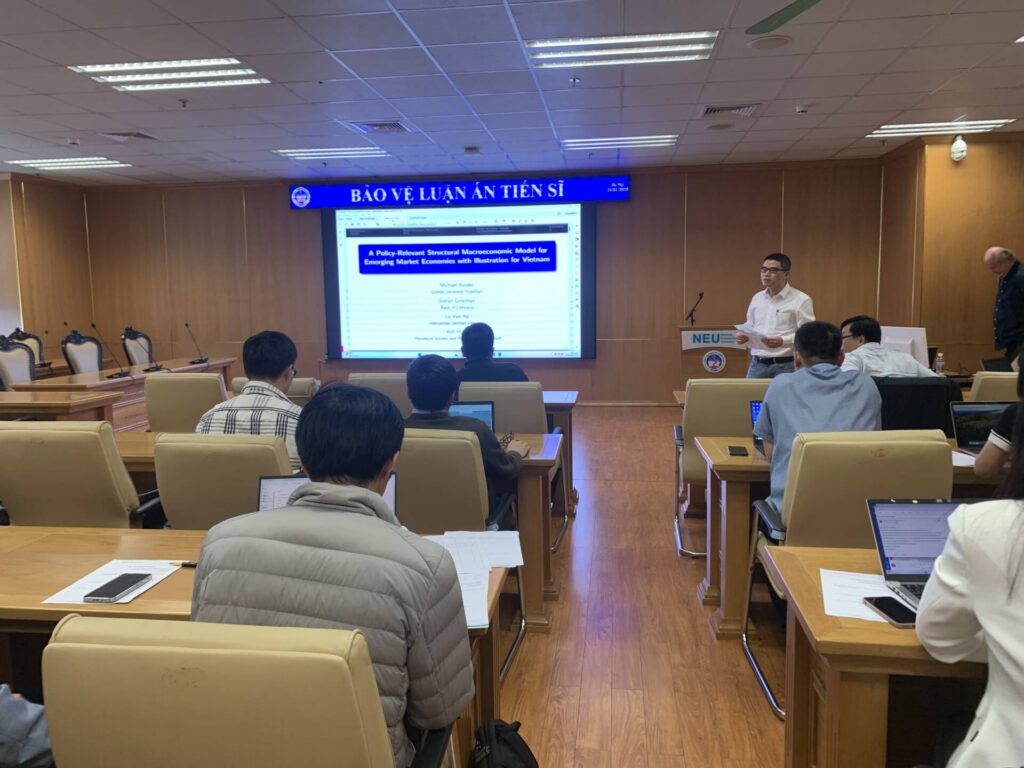
Article and Photos: Institute for Sustainable Development
